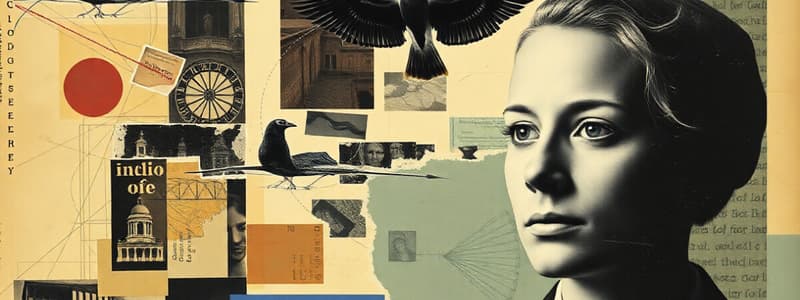Podcast
Questions and Answers
What best defines cognition?
What best defines cognition?
- The emotional response to learning experiences.
- The process of acquiring new skills.
- The processes involved in acquiring skills or knowledge. (correct)
- The act of remembering and recalling information.
Which of the following elements is essential for learning?
Which of the following elements is essential for learning?
- Feedback
- Motivation
- Attention (correct)
- Distraction
What is elaborative rehearsal?
What is elaborative rehearsal?
- Learning through understanding meaning and critical thinking. (correct)
- Reading information multiple times without understanding.
- Reviewing notes shortly before a test.
- Repetition of information to keep it in working memory.
How do information and skills become stored in long-term memory?
How do information and skills become stored in long-term memory?
Which domain of learning involves the mastery of skills through repetitive practice?
Which domain of learning involves the mastery of skills through repetitive practice?
What role does attitude play in the learning process?
What role does attitude play in the learning process?
Which option best describes cognitive strategies in learning?
Which option best describes cognitive strategies in learning?
What is not included in the domains of learning?
What is not included in the domains of learning?
Which type of memory allows information to be stored for a longer period through processes like reading or repetition?
Which type of memory allows information to be stored for a longer period through processes like reading or repetition?
What is essential for transferring information from working memory to long-term memory?
What is essential for transferring information from working memory to long-term memory?
During which age range does Piaget's theory indicate the development of language and imagination?
During which age range does Piaget's theory indicate the development of language and imagination?
At what stage does Piaget's theory suggest that individuals become capable of logical manipulation of symbols?
At what stage does Piaget's theory suggest that individuals become capable of logical manipulation of symbols?
What is the primary purpose of engaging in active learning processes like discussion and reflection?
What is the primary purpose of engaging in active learning processes like discussion and reflection?
What memory type involves the initial brief storage of information encountered in daily experiences?
What memory type involves the initial brief storage of information encountered in daily experiences?
Which of the following best describes the egocentric nature of intelligence in Piaget's second stage of cognitive development?
Which of the following best describes the egocentric nature of intelligence in Piaget's second stage of cognitive development?
What cognitive ability does an individual develop during the stage of 11 years and up as per Piaget?
What cognitive ability does an individual develop during the stage of 11 years and up as per Piaget?
Flashcards are hidden until you start studying
Study Notes
Key Concepts in Learning and Cognition
- Cognition: Involves processes of thinking, knowing, remembering, and problem-solving for skill and knowledge acquisition.
- Learning: Represents the process of acquiring specific skills or knowledge.
Elements of Learning
- Learning is facilitated through attention, memory, and encoding.
- Information transitions from sensory memory to working memory when attention is paid.
- Maintenance Rehearsal: Repetition of information to help retain it in working memory.
- Elaborative Rehearsal: Involves understanding meaning and critical thinking, leading to long-term memory storage.
- Encoding: Converts information into brain-storable constructs, essential for memory retention.
Domains of Learning
- Five key domains include:
- Motor Skills: Require repetitive practice to master.
- Verbal Information: Facts and principles associated with knowledge.
- Intellectual Skills: Elaborate on concepts and rules, learned after prior skills.
- Cognitive Strategies: Psychological skills managing learned behaviors and thoughts.
- Attitude: Affective domain influencing motivation to learn.
Memory and Learning Relationship
- Three types of memory:
- Sensory Memory: Stores information briefly for seconds.
- Working Memory: Increased retention through techniques like Maintenance Rehearsal.
- Long-Term Memory: Achieved through understanding and critical assessment, fostering active learning practices such as discussion and reflection.
Piaget's Theory of Cognitive Development
- Outlines that cognitive development occurs in four stages towards achieving intelligence.
- Stages include:
- 0-2 years: Motor activity observational learning without symbols; based on experiences.
- 2-7 years: Language, memory, and imagination develop; intelligence is egocentric and intuitive.
- 7-11 years: Logical manipulation of symbols; less egocentric with increased awareness of external events.
- 11 years and up: Abstract thinking with symbols to understand hypotheses and complex relationships.
Studying That Suits You
Use AI to generate personalized quizzes and flashcards to suit your learning preferences.




